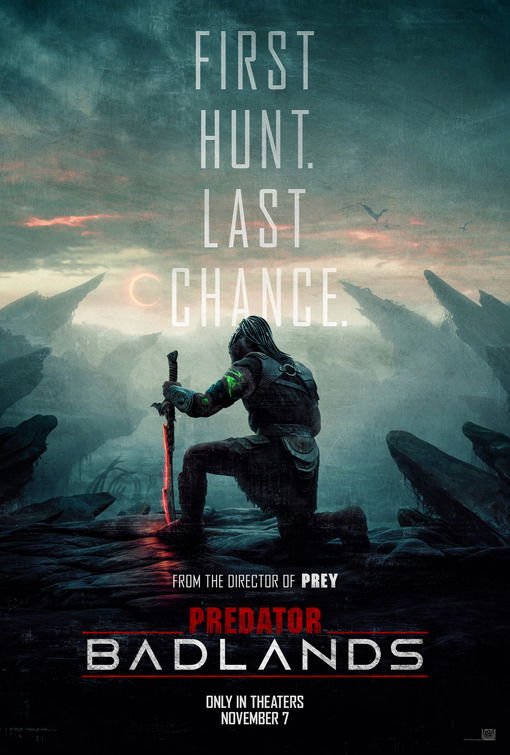Entertainment
‘SNL’ mocks NYC mayoral race and host Miles Teller visits the White House as the Property Brothers

As we mentioned last time when Sabrina Carpenter hosted “Saturday Night Live,” there’s no substitute for a host who fully throws themselves into “SNL.”
He may not have done double duty as host and musical guest the way Carpenter did, but Miles Teller appeared to fully embrace the challenge of returning to host for a second time (the first was in 2022). The “Top Gun 2: Maverick” star, who’ll next be appearing in the movie “Eternity,” gave a solid performance, appearing in nearly every sketch, including the cold open and two pre-recorded videos.
He first appeared as former Gov. Andrew Cuomo, a candidate for New York mayor, in the cold open with help from Ramy Youssef and Shane Gillis as opponents Zohran Mamdani and Curtis Sliwa.
After that, Teller played a hungover game show contestant recovering from Halloween, a hockey player shooting a public service announcement for the unfortunately named Nashville Predators and both twin Property Brothers in a video sketch about the current White House renovation.
Teller was also in a sketch about a TV newsroom that decides to show viewers what its background employees are doing, a Netflix promo for a true crime story about husbands who don’t know where their wives went, one about a police press conference that takes a turn and a show closer about a silly Italian restaurant in Nebraska.
Teller handled it all well; he’s good with accents and earned strong laughs, especially playing two characters at the same time in the “Property Brothers” sketch and as Cuomo in the cold open.
Musical guest Brandi Carlile performed “Church & State” and “Human.”
This week’s cold open was one of the stronger (or at least funnier) political sketches of the season so far, tackling the New York mayoral race. As hosted by Errol Louis (Kenan Thompson), “the least famous person to be impersonated on ‘SNL,’ ” the debate sketch portrayed Cuomo (Teller) as a sexually harassing (“Yadda yadda yadda, honk honk, squeeze squeeze) panderer to Jewish voters; Mamdani (Youssef) as a force-smiling, TikTok-flirting candidate who’s pretty sure he won’t be able to implement his promises; and long-shot candidate Sliwa (Gillis) as an “old-fashioned New York nut” with one traumatic story after another to recount. The biggest surprise may have been Gillis, who as Sliwa recounted stories about being hung by his testicles and getting assaulted by a Times Square Spider-Man. Where was this energy when Gillis hosted “SNL”? As has been the habit on many a cold open, President Trump (James Austin Johnson) interrupts the proceedings to mock the candidates and insert his own commentary. This time, that included singing a song from “Phantom of the Opera” to conclude the sketch.

Teller’s monologue was short and simple, relaying how as a kid who moved around most of his childhood, “SNL” was a constant. He shared a photo of himself and his sisters dressed up as the “Night at the Roxbury” characters from the show and then made up a list of memories from the show, like having his first beer in the audience and falling over after having a few beers. Teller mentioned that he and his wife lost their Palisades home in January’s Los Angeles fires. As such, he made sure to point out the fire exits for the audience.
Best sketch of the night: An extreme White House makeover

The Property Brothers Jonathan and Drew Scott (Teller times two) meet their toughest clients yet: Trump and First Lady Melania Trump (Chloe Fineman) who need help with their current renovation of the White House to make room for a new ballroom. Melania shared her skeleton and withered tree decorations (“They are for Christmas,” she said), and the couple complained that 55,000 square feet and 132 rooms just isn’t enough space. With a budget of “$350 million to infinity” the brothers get to work with the help of park rangers and astronauts working through the government shutdown. But when it comes to getting paid for their work, there’s a problem. “Aren’t you guys from Canada?” the president asks. Then he calls ICE on them.
Also good: Nobody asked for this much transparency in news

On a show called Newspoint, the host (Fineman) and her guest (Thompson) are trying to have a serious news discussion, but because the show has opened up its full newsroom to viewers, all the workers in the background draw attention. Among them are Mikey Day, who awkwardly notices the cameras are on him before spilling a carrier of drinks, Bowen Yang as a worker who gets electrocuted by a copy machine and Teller, who has manga erotica up on his work screen. It’s nice to see some physical comedy from Day in particular and the sketch’s visual gags work nicely.
‘Weekend Update’ winner: George Santos is back, untruthful as ever!

Andrew Dismukes and Ashley Padilla (who should be a full cast member at this point instead of a featured player) played a couple who just made out but are trying to discuss the government shutdown. But it was Yang as chronic liar George Santos who stole “Update” (and some jewels) after Yang missed an opportunity on the last “SNL” episode to play the former representative, whose prison term was commuted by Trump. Santos claimed he finished the New York marathon, which hadn’t happened yet, and kept interrupting his chat with “Update” co-host Colin Jost to take calls with prisoners with a jail window and phone he brought with him. He purported to speak with Ghislaine Maxwell, Luigi Mangione and Sean “Diddy” Combs before revealing that the key to making prison rice pudding is preheating the toilet to 350 degrees. Santos ended the segment by revealing the necklace he stole from the Louvre and insisting that he’d just won the World Series.

Movie Reviews
Labyrinth Anime Film Review

Within the first few minutes of director Shōji Kawamori‘s Labyrinth, protagonist Shiori laments that “without smartphones, humanity would be doomed”. From the events that later transpire, I suspect Kawamori’s opinion is quite the opposite. Kawamori is, of course, best known for his lifetime of work on the Macross franchise, which features mecha battles, idol singers, and love triangles in most of its entries. If you squint a little, each of these main obsessions is also present in Labyrinth. It seems that Kawamori can’t help himself. Whether these elements mesh together to make a satisfying film is another matter entirely. Whereas his most beloved film, Super Dimension Fortress Macross: Do You Remember Love?, is a timeless classic, Labyrinth‘s reliance on modern tech and the anxieties around it almost instantly date it.
At the end of the screening, with my head in my hands, I sighed to myself, “How in hell’s name am I supposed to review this?” It’s a movie that almost defies explanation; any attempt to summarise the plot is likely to leave me gibbering incomprehensibly. I guess I’ll have to try. Suffice to say, Labyrinth is not by any means a “good” film. However, it’s certainly an entertaining one, and often (unintentionally) hilarious. Watching along with a highly engaged audience at the Scotland Loves Anime film festival was probably the best mode of experience for Labyrinth, for without my fellow cinemagoers’ stunned, disbelieving laughter, I doubt I would have survived to the end of its bloated, almost two-hour-long runtime.
Shiori is supposed to be the audience insert, an anxious high school girl who constantly apologizes for her mere existence. The daughter of a titanic judo instructor with the most impressively imposing moustache this side of Ivo Robotnik, she rejects her family’s focus on self-improvement via martial arts. Instead, she records social media videos with her female best friend Kirara. Their friendship is somewhat unequal – Kirara is far more outgoing and confident, and Shiori secretly seethes that her videos accrue far more “likes” from the faceless online masses. In fact, Shiori uses a secret, anonymous account to spew her negativity onto the internet rather than owning it as part of herself.
It’s this sublimated jealousy and insecurity that not only fractures their friendship but also Shiori’s identity. When her beloved smartphone screen cracks, it sends ruptures through her reality, as her persona splits in two – the more anxious version trapped within an almost Silent Hill-like alternative dimension, a shadowy analogue to the real world but empty of people, and a more confident “ideal” version that instantly becomes more outgoing. Ideal Shiori dons a VTuber-style two-tone wig and sets her sights on becoming a modern media superstar, the most popular Japanese high school girl, with a goal of garnering 100 million “likes.” She views her anxious alter ego as an impediment, and frequently taunts her through her apparently cloned smartphone, which seems to be able to dial its identical equivalent in the digital world, somehow without generating network errors.
We mostly view the story through Anxious Shiori’s eyes. She journeys through a dark, ominous liminal space populated by the souls of others similarly sucked into the digital underworld, where they are transformed, unsettlingly, into the smartphone stickers that best approximate their personalities. Anxious Shiori herself tended to contribute to friend group chats mainly via stickers as a way to hide her true emotions, engaging only at a surface level. The constant demand for connectivity and reciprocal communication is shown to be exhausting and all-consuming; so, when Kirara completely disconnects and ghosts Shiori, she panics that maybe Kirara has also been sucked into this world and lost her soul. The only thing preventing Shiori from losing hers is that her smartphone remains charged. Yes, in Labyrinth all that stands between humanity and devolution into mute digital emoticons is the presence of a spare battery pack. I know that I can get anxious when out and about and running low on charge, but Labyrinth takes battery anxiety to the extreme.
Human souls are bound and pressed by enormous industrial devices that pound three-dimensional bodies into flat images, with reams of red digital text spewing from between heavy plates, clearly symbolising blood. It’s cool imagery that I wish the film had leaned into a little more heavily. If anything, the aesthetic is similar to the recent Hatsune Miku movie Colorful Stage, although with significantly less music, unfortunately.
Anxious Shiori meets Komori, a sad-looking pink bunny sticker person who seems to know a lot about this world – the eventual reveal of his true identity is probably meant to be a huge shock, but I guessed it instantly. It’s not the most subtly plotted of films. Komori is quite fun, especially when he becomes so hapless and useless that Shiori has to attach a dog collar and string to drag him around behind her, floating like a balloon and bumping into things.
If it wasn’t already deranged, Labyrinth‘s central plot goes full batshit insane later on, with the evil mastermind Suguru Kagami planning to “liberate everyone’s ideal selves,” and it’s up to Anxious Shiori and Komori to try to prevent this… somehow.
Aesthetically, the film has its moments, especially in the digital underworld that acts as a dark mirror to our own. Unfortunately, all of the character animation is accomplished using 3D CG, which, while it does a reasonable job of emulating 2D animation, lacks any real-life authenticity. The characters move like dolls rather than real, living, breathing characters. There’s something about the natural exaggeration of movement, such as squashing and stretching, and other techniques often employed in traditional animation that bring life to character movement, which is all but absent. Yes, there’s some reasonably amusing slapstick here and there, and funny character expressions, but it’s a far cry from the verve and atmosphere of Kawamori’s previous works.
For much of Labyrinth, the festival audience sat in silence until some of the nuttier plot decisions were met with incredulous guffaws. Mostly, the film plays itself very straight, which is odd for a story featuring a floating pink bunny character and an evil music producer who wants to rule the world. One particular scene where Kagami takes Ideal Shiori to his bedroom and begins to suggestively unzip his tracksuit top was met with hysterical audience laughter that will become obvious if you see the film.
Multiple similar examples litter Labyrinth, and it’s hard to tell if these insane choices that trigger such hilarity are deliberate or not, and that’s why the film is so hard to rate. None of the pieces fit together properly. Anxious Shiori, for most of the film, is a fairly unengaging, dull protagonist, though her fake/ideal version is much more fun, which is probably the point. Kagami makes for a somewhat underwhelming villain, with an unclear plan that seems overly convoluted. The rules of the world seem to change upon the writer’s whim, and crazy stuff happens mostly out of nowhere. It’s like a laundry list of bonkers ideas all strung together without any coherent plan.
I found Labyrinth a struggle to endure, yet found certain aspects very entertaining. Perhaps my mistake was watching it stone cold sober. As one of my fellow festival attendees noted, it’s probably best viewed with at least a few beers on board already. I certainly can’t unreservedly recommend Labyrinth, but if you’re hankering for some good old “WTF am I even watching right now?”, then Labyrinth has you covered.
Entertainment
Warner Bros. Discovery reports a loss as sale process heats up
Warner Bros. Discovery reported a $148 million loss in the third quarter, hitting a sour note as the company began fielding interest from would-be buyers as Hollywood braces for a transforming deal.
Earnings for the entertainment company that includes HBO, CNN and the Warner Bros. film and TV studios fell short of analyst expectations. A year ago, the company reported profit of $135 million for the third quarter.
Revenue of $9.05 billion declined 6% from the year-ago period. The company swung to a loss of 6 cents a share, compared to last year’s earnings of 5 cents a share.
Still, Chief Executive David Zaslav spent much of Thursday’s call with analysts touting his company’s underlying strengths — while avoided giving details about the company’s sale.
“It’s fair to say that we have an active process underway,” Zaslav said.
Warner Bros. Discovery on Thursday reiterated it is forging ahead with previously announced plans to split into two separate entities by next spring. However, the Warner board acknowledged last month that it was also entertaining offers for the entire company — or its parts — after David Ellison’s Paramount expressed its interest with formal bids.
Paramount has made three offers, including a $58 billion in cash and stock for all of Warner Bros. Discovery. That bid would pay Warner stockholders $23.50 a share.
The Ellison family appears determined to win one of Hollywood’s most storied entertainment companies to pair with Paramount, which the Ellisons and RedBird Capital Partners acquired in August.
But Warner Bros. Discovery’s board, including Zaslav, voted unanimously to reject Paramount’s offers and instead opened the auction to other bidders, which is expected to lead to the firm changing hands for the third time in a decade.
Board members are betting the company, which has shown flickers of a turnaround, is worth more than the offers on the table. Despite its rocky third-quarter results, Warner’s stock held its ground in early morning trading at around $22.60 a share.
“Overall we are very bullish,” Zaslav said of the company’s business prospects.
“When you look at our films like ‘Superman,’ ‘Weapons’ and ‘One Battle After Another,’ the global reach of HBO Max and the diversity of our network’s offerings, we’ve managed to bring the best, most treasured traditions of Warner Bros. forward into a new era of entertainment and [a] new media landscape,” he said.
But the company’s results underscored its business challenges.
The studio witnessed a major decline in advertising revenue in the third quarter, reporting $1.41 billion, down 16% from the previous year, which executives attributed to declines in the audience for its domestic linear channels, including CNN, TNT and TLC.
Distribution revenue also took a hit, as the company reported sales of $4.7 billion, a decrease of 4% compared to last year.
Studio revenue increased 24% to $3.3 billion, powered by the success of DC Studios’ “Superman,” horror flick “Weapons” and the latest installment of “The Conjuring.” But even those box office wins couldn’t totally offset shortfalls in other areas of its content business.
Last year, the company was able to sub-license its rights to broadcast the Olympics in Europe, which pushed content revenue to $2.72 billion. But this year, revenue was down 3% to $2.65 billion.
Burbank-based Warner Bros. has had a string of success in theaters, with nine films opening at the top spot globally at the box office. The studio recently surpassed $4 billion in worldwide box office revenue, making it the first studio to do so this year. Warner Bros. last achieved that milestone in 2019.
Zaslav would like to continue with Warner’s break-up plans, which were announced last June.
The move would allow him to stay on to manage a smaller Hollywood-focused entity made up of the Warner Bros. studios, HBO, streaming service HBO Max and the company’s vast library, which includes Harry Potter movies and award-winning television shows such as “The Pitt.”
The company’s large portfolio of cable channels, including HGTV, Food Network and Cartoon Network, would become Discovery Global and operate independently.
Beyond Paramount, Philadelphia-based Comcast, Netflix and Amazon have expressed interest in considering buying parts of the company.
The company said its third quarter loss of $148 million was the result of a $1.3 billion expense, including restructuring costs.
Movie Reviews
PREDATOR: BADLANDS Review

Dominant Worldview and Other Worldview Content/Elements:
Very strong moral worldview, with some redemptive qualities, teaches that protecting the weak elevates and ennobles the soul, and aids in one’s survival and defeat of evil, and the movie also promotes compassion, empathy, helping others, and equipping the weak to survive, but two parental figures in the movie are evil and heartless, but the hero tries to appease his evil father and gain his approval, despite his father’s rejection;
Foul Language:
No foul language;
Violence:
Strong and light, sometimes scary, violence such as predator alien murders his older son because he refuses to kill his younger and weaker brother (the Predator society is based on Spartan-type values regarding hunting and war), evil father tries to kill the other son but the older brother pre-prepared his spaceship to take the younger brother to another planet to earn their clan’s hunting initiation status, younger brother crash lands and fights off vicious vines, younger brother finds human female android who helps him survive the planet’s dangers, she helps him survive plant seeds that explode and put other creatures to sleep before eating them, she helps him kill a large alien animal for food, they have to survive grass that’s sharp as knives, they discover and eventually befriend a small creature who helps them in the hunt, younger brother fights large alien creature with rows of vicious-looking teeth and an ability to regenerate in hopes of capturing said creature and earning him the right to become a respected member of his clan, younger brother and female android battle evil heartless androids of large corporation that wants to use the younger brother to develop weapons and other useful items for people and wants to do the same thing with the large alien creature and its regeneration abilities he’s hunting, a big fighting sequence occurs near the movie’s end, followed by another life and death fight, and android robot bodies are smashed or torn apart or beheaded, characters are impaled or partially exploded using small fiery worm creatures;
Sex:
No sex;
Nudity:
No nudity;
Alcohol Use:
No alcohol use;
Smoking and/or Drug Use and Abuse:
No smoking or drugs (evil android puts good android to sleep by turning her off); and,
Miscellaneous Immorality:
A humanoid alien creature, the Predator in the movie title, has a disagreement with his evil father but he hopes to earn his father’s respect by hunting and capturing a large, awesome alien creature, but the evil father has decided that both his younger and elder son are too weak to survive, so can his mind be changed?
The movie opens with a brief written preface about the Predator race of aliens called the Yautja. The primary goal of these aliens is to hunt, and they hunt alone.
Cut to their home planet. Kwei is the larger older brother of Dek. Dek, the movie’s central character, is the runt of the litter in a clan that removes any sign of weakness. The Yautja think one weak link breaks the chain. Sadly, for Dek, that means he’s subjected to not just being ousted from the clan but being killed.
Kwei and Dek are arguing about Dek’s situation in Kwei’s spaceship. Unexpectedly, Kwei sympathizes with Dek, but warns him that his chances don’t look good, especially since their father already has rejected Dek. Dek chooses a lethal planet called Genna as his hunting ground. He also decides that, to gain their father’s approval and elevate his status, he will hunt a large and allegedly unkillable apex predator called the Kalisk. Kwei is not happy about that. He thinks the Kalisk will kill Dek because Dek is too weak. Dek replies, that, if he dies, which probably is likely, at least he will die with honor.
At that point, their gray-haired father appears. He’s angry and asks why Kwei didn’t kill Dek as he ordered to do. Kwei defies his heartless father. So, their father decides Kwei too must die because to forgive weakness is itself a sign of weakness. So, he tries to kill Kwei, but Kwei defends himself.
Meanwhile, Dek tries to help his brother, but Kwei shoves Dek back into his spaceship and closes the door on him. So, Dek watches helplessly from the ship while Kwei fights his father. Eventually, the father fatally wounds Kwei by thrusting his flaming sword through Kwei’s chest from behind. With his dying breath, Kwei activates his ship to send Dek to Genna.
Dek is knocked out by the spaceship’s sudden movement, and he wakes up on Genna. Immediately on exiting the ship, Dek encounters deadly brown vines that swing form the trees and try to kill and eat him. He fends them off with his blade and guns. A strange monkey-looking creature watches the fight and bonds with Dek. The creature is able to escape the vines by swinging through the trees, but he seems to help Dek fight them.
After fighting off the vines, Dek and the creature come to a clearing. They face new dangers, but get help from a damaged human-looking android, a female named Thia. Thia activates her translator and is able to understand Dek while he can understand her English. Her torso was severed from her robotic legs when she and her android companion, Tessa, encountered a Kalisk. She offers to take Dek to the creature’s lair if Dek will help her get back to Tessa, who disappeared during their fight with the creature. When Dek says he only hunts alone, Thia proposes that he think of her as a tool.
Dek agrees. So, with that, Dek and Thia establish a partnership, and the monkey creature, whom Thia names Bud, accompanies them.
Of course, getting to the Kalisk’s lair and capturing, or even killing the Kalisk is a very difficult proposition. Complications ensue when they come upon Thia’s twin android, Tessa. Thia’s twin decides that she and the androids under her leadership should serve the evil corporation that brought her and Thia to Genna. That means capturing the Kalisk and imprisoning Dek to take both of them to Earth for the company’s experiments and technology creation, including weapons creation.*
The odds are stacked against Dek, Thia and Bud. Will they survive and remain free?
PREDATOR: BADLANDS is a terrific science fiction thriller. It has excitement, thrills, heroic deeds, and lots of heart. Thia teaches Dek to be compassionate and empathetic. Meanwhile, the evil androids, including Tessa, are heartless automatons with not an ounce of sympathy. This conflict provides a marvelous, exhilarating contrast of good versus evil. Also, PREDATOR: BADLANDS has no foul or crude language and no explicit lewd or obscene content.
However, the movie does have lots of strong, action violence, scary moments, and scary creatures. The camera often cuts away from the more gruesome acts of violence, but it does show things like the father’s fiery blade exiting the older brother’s chest. Also, the good guys smash, crush, impale, and behead some of the heartless evil androids. Moreover, the predatory Yautja aliens are scary looking, as are the killer vines and the giant Kalisk monster. For instance, the Yautja have four large menacing teeth on the outside of their mouths, and the Kalisk has rows of scary teeth in its mouth plus a large scary dinosaur-like tail.
In addition, PREDATOR: BADLANDS shows that Dek and Kwei’s father is an evil alien who wants to kill his sons because they’ve disappointed him. Also, the computer program that the evil androids use is named MUTHR, like in the original ALIEN movie.* Thus, the movie’s two parental figures are evil and negative. So much for “honor thy father and mother.”
That said, PREDATOR: BADLANDS has a very strong moral worldview with some redemptive qualities. The movie teaches that protecting and equipping the weak ennobles and elevates the soul. It also aids in one’s survival and one’s triumph over evil.
MOVIEGUIDE® advises strong caution for the intense action violence and scary parts, characters and creatures in PREDATOR: BADLANDS.
* The evil corporation in PREDATOR: BADLANDS is the same as the one in the ALIEN movies, which originally ordered a heartless android to retrieve a dangerous alien specimen at the expense of the human crew of a spaceship called The Nostromo. 20th Century Fox, which is now owned by Disney, decided back in the 1990s to merge the ALIEN and PREDATOR franchises. In the ALIEN MOVIES, the company wanted to use the alien species to develop and sell new weapons, including bio-weapons. In PREDATOR: BADLANDS, the corporation also wants to use the large apex predator, the Kalisk’s, regeneration abilities to regenerate human body parts, including human and android soldiers, as part of the company’s medical and pharmaceutical division.
-

 Milwaukee, WI1 week ago
Milwaukee, WI1 week agoLongtime anchor Shannon Sims is leaving Milwaukee’s WTMJ-TV (Channel 4)
-

 News1 week ago
News1 week agoWith food stamps set to dry up Nov. 1, SNAP recipients say they fear what’s next
-

 Culture1 week ago
Culture1 week agoVideo: Dissecting Three Stephen King Adaptations
-

 Seattle, WA1 week ago
Seattle, WA1 week agoFOX 13’s Aaron Levine wins back-to-back Jeopardy! episodes
-

 Seattle, WA5 days ago
Seattle, WA5 days agoESPN scoop adds another intriguing name to Seahawks chatter before NFL trade deadline
-

 Austin, TX18 hours ago
Austin, TX18 hours agoHalf-naked woman was allegedly tortured and chained in Texas backyard for months by five ‘friends’ who didn’t ‘like her anymore’
-

 Education1 week ago
Education1 week agoOpinion | New York City Mayoral Candidates: Who Would Be Best?
-

 San Diego, CA1 week ago
San Diego, CA1 week agoAdd Nick Hundley, Ruben Niebla to list of Padres’ managerial finalists













